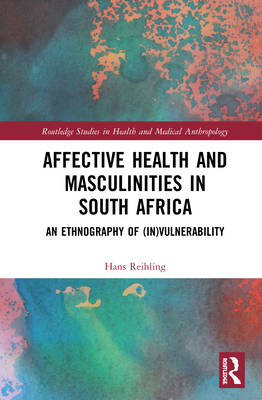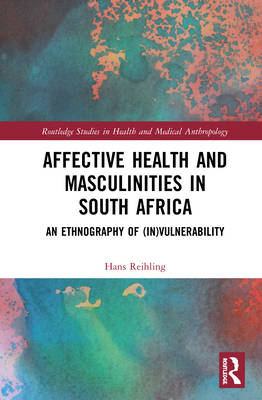
- Retrait gratuit dans votre magasin Club
- 7.000.000 titres dans notre catalogue
- Payer en toute sécurité
- Toujours un magasin près de chez vous
- Retrait gratuit dans votre magasin Club
- 7.000.0000 titres dans notre catalogue
- Payer en toute sécurité
- Toujours un magasin près de chez vous
Affective Health and Masculinities in South Africa
An Ethnography of (In)vulnerability
Hans Reihling
290,45 €
+ 580 points
Format
Description
Affective Health and Masculinities in South Africa explores how different masculinities modulate substance use, interpersonal violence, suicidality, and AIDS as well as recovery cross-culturally.
Spécifications
Parties prenantes
- Auteur(s) :
- Editeur:
Contenu
- Nombre de pages :
- 192
- Langue:
- Anglais
- Collection :
Caractéristiques
- EAN:
- 9780367348816
- Date de parution :
- 21-04-20
- Format:
- Livre relié
- Format numérique:
- Genaaid
- Dimensions :
- 180 mm x 249 mm
- Poids :
- 975 g

Les avis
Nous publions uniquement les avis qui respectent les conditions requises. Consultez nos conditions pour les avis.






